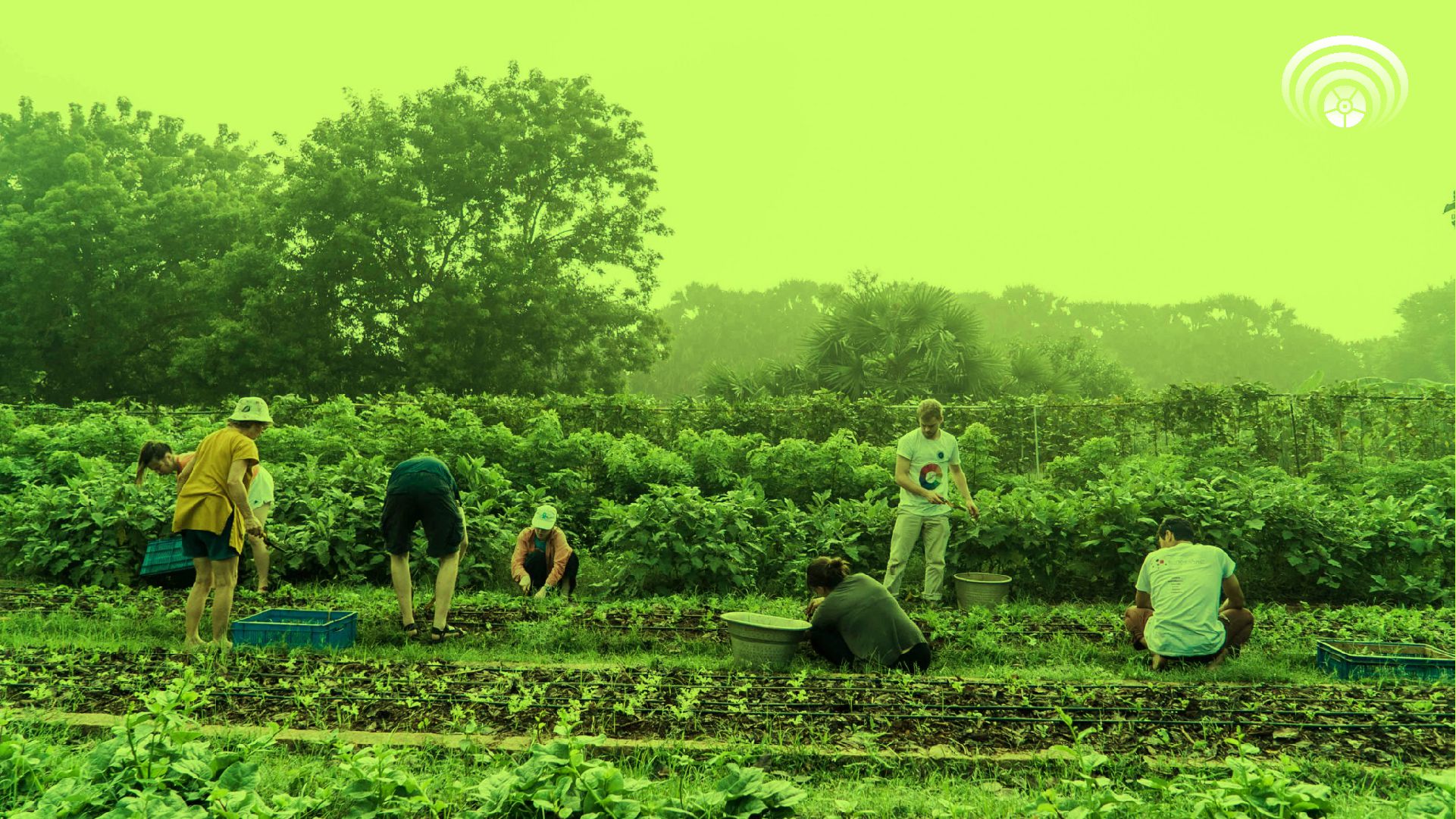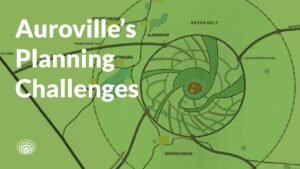
Auroville, the international township nestled in the heart of Tamil Nadu, India, is a remarkable hub of conscious living and sustainability. At its core, Auroville is not just about community and spirituality; it’s also a thriving center of organic farming. In this article, we delve into Auroville’s pioneering efforts in the field of organic agriculture and how these practices contribute to sustainable farming, setting an inspiring example for the world.
Auroville’s Organic Farming Philosophy
Auroville’s approach to farming is deeply rooted in sustainability and ecological harmony. The community’s philosophy embraces a holistic understanding of agriculture and its impact on the environment, human health, and the broader ecosystem. Here are the key principles that guide Auroville’s organic farming practices:
1. Organic and Chemical-Free: Auroville’s farms are entirely organic and free from synthetic chemicals, pesticides, and fertilizers. This commitment to chemical-free farming is not only beneficial for the environment but also ensures that the produce is healthy and safe for consumption.
2. Biodiversity: Auroville places a strong emphasis on biodiversity. Farms are designed to mimic natural ecosystems, allowing various plant and animal species to coexist. This approach promotes ecological balance and soil health.
3. Soil Regeneration: Regenerative farming practices are at the heart of Auroville’s approach. The community actively works to enhance soil fertility, reduce erosion, and restore nutrients through techniques like composting, cover cropping, and minimal tillage.
4. Water Management: Auroville prioritizes responsible water management. Rainwater harvesting, efficient irrigation systems, and the reuse of treated wastewater are common practices. These measures help conserve water and reduce the strain on local water resources.
5. Seed Saving: The community values seed diversity and actively participates in seed-saving initiatives. Auroville preserves and exchanges heirloom seeds, protecting genetic diversity in agriculture.
6. Sustainable Energy: Auroville explores renewable energy solutions for farming operations. Solar power and bioenergy play a significant role in reducing the carbon footprint of agriculture.
The Journey to Sustainable Farming
Auroville’s journey towards sustainable farming wasn’t always smooth. It required innovation, adaptability, and a commitment to continuous learning. Over the years, the community has managed to create thriving organic farms that serve as models of regenerative agriculture.
1. Experimentation and Adaptation: Auroville’s farms have always been sites of experimentation. The community has continually adapted its farming practices to suit local conditions, incorporate traditional wisdom, and explore modern sustainable techniques.
2. Learning from the Land: One of the keys to Auroville’s success in sustainable farming is its deep connection to the land. Residents and farmers work in close harmony with the local ecosystem, learning from the environment and making informed decisions based on nature’s cues.
3. Education and Training: Auroville places great importance on education and training in sustainable agriculture. Workshops, courses, and hands-on learning experiences are regularly organized to equip residents and farmers with the knowledge and skills they need.
4. Community Support: The Auroville community is supportive of organic farming initiatives. Residents often come together to support local farmers, helping with planting, harvesting, and other farm-related activities.
5. Eco-Friendly Practices: Farms in Auroville use eco-friendly practices such as biodynamic farming, permaculture, and no-till farming. These techniques not only produce healthier crops but also promote soil health and biodiversity.
Impact on Sustainability
Auroville’s organic farming practices have a significant impact on sustainability, touching on various aspects of agriculture and the environment:
1. Ecological Balance: By promoting biodiversity, Auroville helps maintain ecological balance and ensures that local ecosystems thrive. Pollinators, birds, and other wildlife benefit from these practices.
2. Soil Health: Organic farming techniques, like composting and cover cropping, improve soil health and fertility. Healthy soils support better crop growth and yield.
3. Water Conservation: Responsible water management, including rainwater harvesting and efficient irrigation, reduces the demand on local water sources and minimizes the environmental impact of farming.
4. Reduced Carbon Footprint: Auroville’s commitment to renewable energy and minimal transportation of produce results in a reduced carbon footprint. Food miles are kept to a minimum.
5. Human Health: Organic farming practices ensure that the food produced is free from harmful chemicals. This not only benefits the local community but also contributes to healthier food systems globally.
Community and Sustainability
Auroville’s commitment to organic farming goes hand in hand with its values of community and sustainability. The connection between these elements is evident in the way agriculture is integrated into the daily life of the community:
1. Community-Managed Farms: Auroville has several community-managed farms where residents actively participate in farming activities. This engagement creates a sense of ownership and responsibility towards sustainable agriculture.
2. Farm-to-Table: The community promotes the “farm-to-table” concept, ensuring that residents have easy access to fresh, locally grown produce. This approach reduces the carbon footprint associated with food transportation.
3. Education and Awareness: Auroville’s educational institutions play a significant role in raising awareness about sustainable farming practices. The next generation is instilled with the values of ecological stewardship.
4. Cultural Significance: Farming is deeply ingrained in Auroville’s culture. It serves not only as a source of sustenance but also as a source of connection to the land and a reminder of the community’s commitment to sustainability.
The Future of Organic Farming in Auroville
As Auroville continues to evolve and grow, organic farming will remain a cornerstone of its commitment to sustainability. The community will continue to innovate, adapt, and educate, sharing its wisdom and practices with the world.
Auroville’s journey in cultivating abundance through organic farming is a testament to the belief that farming can be sustainable, eco-friendly, and regenerative. It serves as an inspiration for communities worldwide, reminding us that we can nourish the earth and ourselves in a way that respects and preserves the planet for future generations.
Conclusion
Auroville is not just a place; it’s a living example of sustainable living and regenerative farming. The community’s commitment to organic agriculture is a reflection of its broader values of ecological harmony and responsible stewardship of the earth.
Auroville’s organic farming practices are a remarkable embodiment of the belief that we can farm in a way that nourishes both the land and the people. These practices contribute to ecological balance, soil health, and a reduced carbon footprint, reminding us that sustainable agriculture is a crucial step towards a more harmonious and sustainable future.






